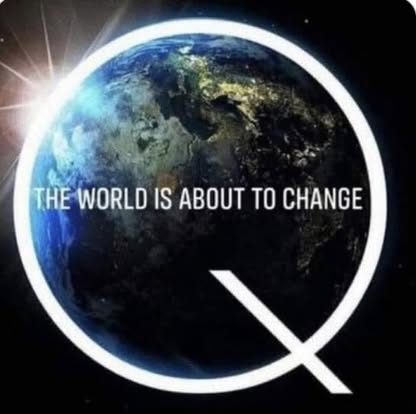

Sen. Ted Cruz (R-Texas), who finished in second place to President Trump in the 2016 Republican presidential primary, has distinguished himself from MAGA World by declaring his skepticism of long-term tariffs, remaining a hawk on Russia and coming out against proposals to tax the rich.
By calling out tariffs as “taxes on American consumers” and sticking to his view that Russia poses a serious threat to U.S. interests, Cruz may be laying the groundwork to run against Trump’s heir apparent, Vice President Vance, in a 2028 Republican primary.
“I think he’s carving out a position for himself as the defender of traditional conservatism,” Vin Weber, a Republican strategist, said of Cruz, who is 54.
“He’s a viable contender for president because he’s a brilliant conservative and he represents the largest Republican state,” he said.
A big potential obstacle for anyone seeking the GOP presidential nomination in 2028 is Vance, who is 40.
Vance is Trump’s natural heir apparent and has fully embraced the MAGA agenda, including the use of high tariffs to bring manufacturing back to the United States and a view that the nation doesn’t have the defense industrial capacity to continue providing billions of dollars in military support to Ukraine.
Weber said Vance is an “obvious problem” to any White House ambitions from Cruz or other Republicans.
“I supported Jack Kemp against George H.W. Bush in 1988 and we thought we had a great chance because Jack was the defender of Reaganism, but we couldn’t overcome the strength of the sitting vice president,” he said, referring to former President George H.W. Bush’s victory in the 1988 Republican presidential primary.
“The MAGA base, they love JD Vance,” he added.
A Republican strategist allied with Cruz declined to speculate about the senator’s future political ambitions but ticked off the advantages he would bring to any presidential race.
“You got a guy that has 99-percent name ID with the party, a guy that has a national fundraising and small-dollar infrastructure and a guy that came in second in 2016. He’s focused the next two years on delivering big wins for President Trump. We’ll see what happens in the future. He’s still a young guy,” the source said.
Both Cruz and Vance are focused on implementing Trump’s ambitious legislative agenda, but Republican strategists predict the race for the Republican nomination will pick up momentum immediately after the midterm election.
One GOP strategist told The Hill that Republican policy experts and operatives are already jockeying for positions on a possible Vance presidential campaign or future administration.
Cruz’s best opportunity to become the next Republican nominee for president may emerge if Trump’s tariff policies backfire, something many Republican lawmakers on Capitol Hill fear is a real possibility.
Trump has imposed a 90-day pause on his steepest “reciprocal” tariffs on more than 180 counties and territories, but he is standing firm on a 145 percent tariff against China, the world’s second largest economy.
Cruz is warning that Trump’s trade war, if it doesn’t resolve soon, could become the “biggest tax increase we have seen in a long, long time” and “hurt jobs and hurt America.”
Cruz also says the war in Ukraine should end in a “clear and unequivocal loss for Russia and loss for [Russian President Vladimir] Putin.”
And Cruz says he does not support raising taxes on wealthy Americans by pushing the top marginal tax rate from 37 percent to 39.6 percent, or by creating a new 40 percent tax rate for people who earn more than $1 million annually.
Close
Thank you for signing up!
Subscribe to more newsletters here
The latest in politics and policy.
Direct to your inbox.
Sign up for the Evening Report newsletter
Subscribe
if ( window.checkSizeClasses && window.checkSizeClasses instanceof Function) {
window.checkSizeClasses();
}
The Trump White House is mulling both proposals, according to Republican sources, though raising taxes on the nation’s top earners would face stiff opposition in the Senate, where Cruz is chair of the Commerce Committee.
“These are positions that certainly could be viewed as being geared toward the next presidential election,” said Steven S. Smith, a professor of political science at Washington University in St. Louis.
“On the issues of Ukraine and tariffs, the Trump administration is taking what is currently an unpopular position on those issues. It’s true that many Republicans are taking a ‘wait-and-see’ view on both issues — maybe there is a trick to be turned on gaining economic concessions from trading partners, and maybe there is a deal that many would find acceptable,” he said.
“But the kind of pro-Russian, pro-tariff position that the administration has staked out is a pretty weak position, I think, with the general public and obviously with traditional Republican values,” he said.
Smith expressed doubt that Trump will ultimately decide to raise taxes on the rich to pay for more tax relief for the working class, given where most Republican lawmakers stand on the issue.
For Vance’s part, Smith said, “I don’t think he’s going to wander away from what Trump agrees to. And Trump in turn isn’t going to wander away from what congressional leaders tell him is the policy. The president has had a chance to submit a budget, including tax proposals, and has not yet done so.”
A Republican strategist aligned with the Trump administration disputed that Cruz has a viable path to challenge Vance.
“I see the ambition, but the idea he actually has the ability to go out and become the next president is just a pipe dream and something that only people inside the Beltway think is a possibility,” the source said.
“He obviously didn’t prevail in 2016, and he campaigned on a similar posture. The president has had his America First, working-class posture since he came down the golden escalator. It was very different than the Republican Party of years past,” he added.
The strategist pushed back on the claims that the administration has staked out unpopular positions on tariffs, Russia and taxes.
“President Trump and MAGA Republicans clearly understand that for Republicans to be successful in elections to come, we must champion the working class. We are no longer the party that is beholden to special interest groups or multinational conglomerates who enrich themselves with cheap labor overseas,” the strategist said.
On the topic of the war in Ukraine and negotiating with Putin, the strategist argued that Republican candidate Nikki Haley adopted a hawkish stance on Russia and the war in Ukraine during the 2024 Republican presidential primary but failed to gain much traction with voters.
“The MAGA position, the America First position is we want peace, and we want peace through strength and competence and negotiation, and we’re very close to a peace deal,” the strategist said. “I can’t imagine that this is going to be a topic of conversation that’s meaningful in 2028 because I’m confident the administration will get to a deal on that that everyone is very happy with.
“Hawkish views in general are rejected by this new Republican Party. You need this coalition to win the White House,” the source said of Trump’s coalition. “It’s going to take a particular type of message and candidate to keep this coalition together.”
Republican strategists who think Cruz has a chance of winning the GOP presidential nomination in 2028 say he won’t run as an antagonist to the Trump administration but instead as someone who can bridge the divide between traditional conservatives and the more populist MAGA base.
Cruz, for example, has sponsored legislation to enact a core element of Trump’s agenda to extend more tax relief to working-class Americans, the No Tax on Tips Act.
He won reelection in November by a comfortable margin despite Democrats spending tens of millions of dollars to defeat him, and Republican aides and strategists think he still has his eye on the White House.
A Senate Republican aide said Cruz is “definitely” among the Republican senators with White House ambitions. The source also listed Sens. Tom Cotton (Ark.), Josh Hawley (Mo.) and Rand Paul (Ky.) as potential presidential candidates.
Cruz won his first election to the Senate in 2012 and soon thereafter started to lay the groundwork for his 2016 presidential campaign by challenging then-Senate Republican Leader Mitch McConnell (Ky.) and the GOP establishment in Washington.
Most memorably, he spearheaded the push to repeal the Affordable Care Act, which led to a 16-day government shutdown.
Source link





